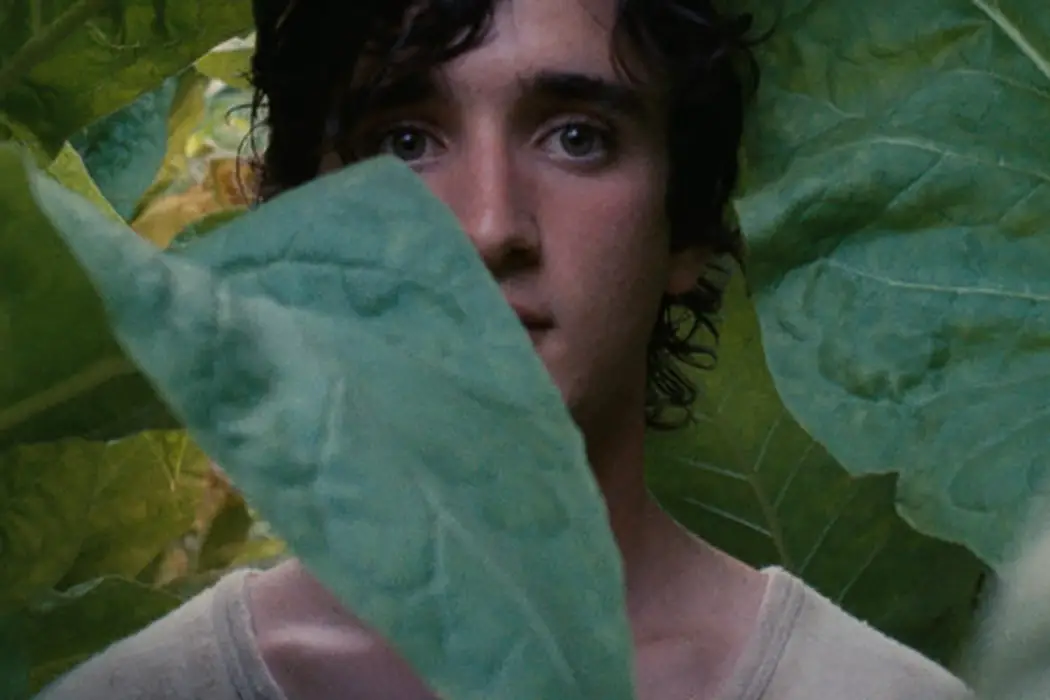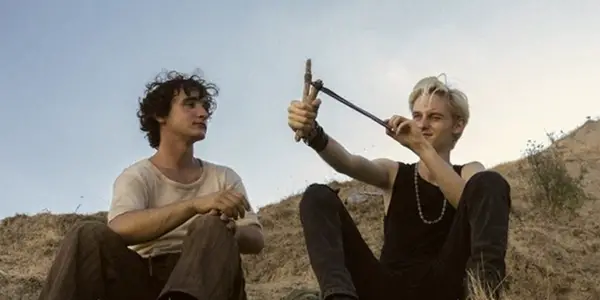HAPPY AS LAZZARO: A Thought-Provoking, If Elusive Elegy For Agricultural Life

Charlie Nicholson has written about films and other media since…
Alice Rohrwacher is quickly gaining momentum as one of Italy’s newest auteurs. Her airy stories – experienced more often through young eyes than not – combine an inquisitive, open camera style with a personal concern for Italy’s steadily increasing self-alienation, as its agricultural history fades beneath modern industry.
Though pastoral coming-of-age The Wonders continues to be the defining work in the filmmaker’s oeuvre, Happy as Lazzaro articulates that alienation more potently than any of her previous works, drawing from the fable mode to mourn the death of quiet country life. It must be said the film lacks the empathy contained in her sophomore feature, but what it does serve to exemplify is Rohrwacher’s refreshing tendency to avoid nostalgia’s saccharine impulses for something more fibrously thought-provoking.

This is the tale of Lazzaro (Adriano Tardiolo); an incorruptible peasant who is regularly taken advantage of by subordinates of Marchesa Alfonsina de Luna (Nicoletta Braschi is part evil stepmother, part oppressor via Marx): the domineering and quite knowingly exploitative kingpin of a large cigarette company. What is at least reassuring – in places, oddly comic – is that Lazzaro doesn’t seem to mind being constantly swept aside in preference for others, nor never having his hard work appreciated.
Rohrwacher’s Modern Fable is as Mournful as it is Thought-Provoking, Even at the Risk of Diminishing Empathy
That is, until he meets Tancredi (a suitably overblown Luca Chikovani); the young and rebellious son of the Marchesa, who, disenfranchised with his bourgeois life, plans to undermine his mother’s capitalist dynasty. Apparently sensing an opportunity in the perpetually placid Lazzaro, Tancredi encourages the labourer to aid his own kidnap, corroborating him as his captor.
There is a fairy tale-like generality to Rorhwacher’s script. Her evil queens, disenchanted nobles and warmhearted beggars are all intended as archetypes, and appear as classically romantic as they do in Pasolini’s Decameron. Similar again, we never lean too much into whimsy, entertaining instead a magical realist ambiguity that leaves the entire thing feeling quite anecdotal.
As peasant and noble exchange worldview amid the sunset haze of rural Italy, coercive alliance becomes treasured friendship, exposing Lazzaro to a life free (or freer) of docile servility. When Tancredi suddenly departs the countryside in search of city life, therefore, Lazzaro vows to seek him out; something that’ll inevitably involve him being faced a rapidly developing culture he neither knows, nor has the skill to participate in.

As soon as city draws near, Lazzaro’s perpetual blankness becomes a point of contrast to the everchanging pace of city-life, turning fable to fish-out-of-water story in the vein of Bicycle Thieves as he navigates an unknown culture in search of his high-born friend. It must be said that the De Sica connection doesn’t do so much in the way of service; where Bicycle Thieves channelled its energy into linking – with immense urgency – the protagonist’s impending poverty and his quest for the crucial bike, Happy as Lazzaro ambles and muses.
Given, the resulting aimlessness feels at home with an Italy losing touch with its ancestral roots. Left intentionally blank (as with many fables, the protagonist has the effect of raising a mirror to his surroundings) Tardiolo plays Lazzaro with a stoic purity that – as dull as his blankness would have been were it not for the gregarious supporting cast – suitably mourns the peaceful way of life that makes him such a stranger in this suited-and-booted new Italy. Even with such the case, the noticeable arm’s length at which so many characters are held often ends up stifling the empathy De Sica created in spades.
Conclusion: Happy as Lazzaro
Though easily levelling with The Wonders in terms of visual quality and innocent, thought-provoking dialogue, the lack of investment leaves Happy as Lazzaro a rather transitory, breathy collection of anecdotes, charming as those anecdotes may be.
Perhaps it’s Lazzaro’s deliberately stunted emotional range, or the film’s notably languid pace (it, like most of its cast, seems to wander through the country into the city, gliding coincidentally with whoever lay in its path), but as elegant as Rohrwacher’s modern fable undoubtedly feels, it is oftentimes difficult to care about the struggles of its characters when they are placed so firmly out of reach.
What are your thoughts on Happy as Lazzaro? Share them in the comments!
Happy as Lazzaro released in Italy on 31 May, and is set to release on 30 November in the U.S. All additional release dates can be found here.
https://youtu.be/8NQUOYO1tow
Does content like this matter to you?
Become a Member and support film journalism. Unlock access to all of Film Inquiry`s great articles. Join a community of like-minded readers who are passionate about cinema - get access to our private members Network, give back to independent filmmakers, and more.
Charlie Nicholson has written about films and other media since 2015, and is approaching his third year studying Film and English Literature at the University of East Anglia. His work can be found on New Game Network, The Independent and Concrete. When he's not expanding his coming-of-age library or buried in a video game, you'll probably find him working on some diorama inspired by eighties-era fantasy. He's also never quite managed to shake his childhood fear of the Gmork. Follow him @Charcolson













